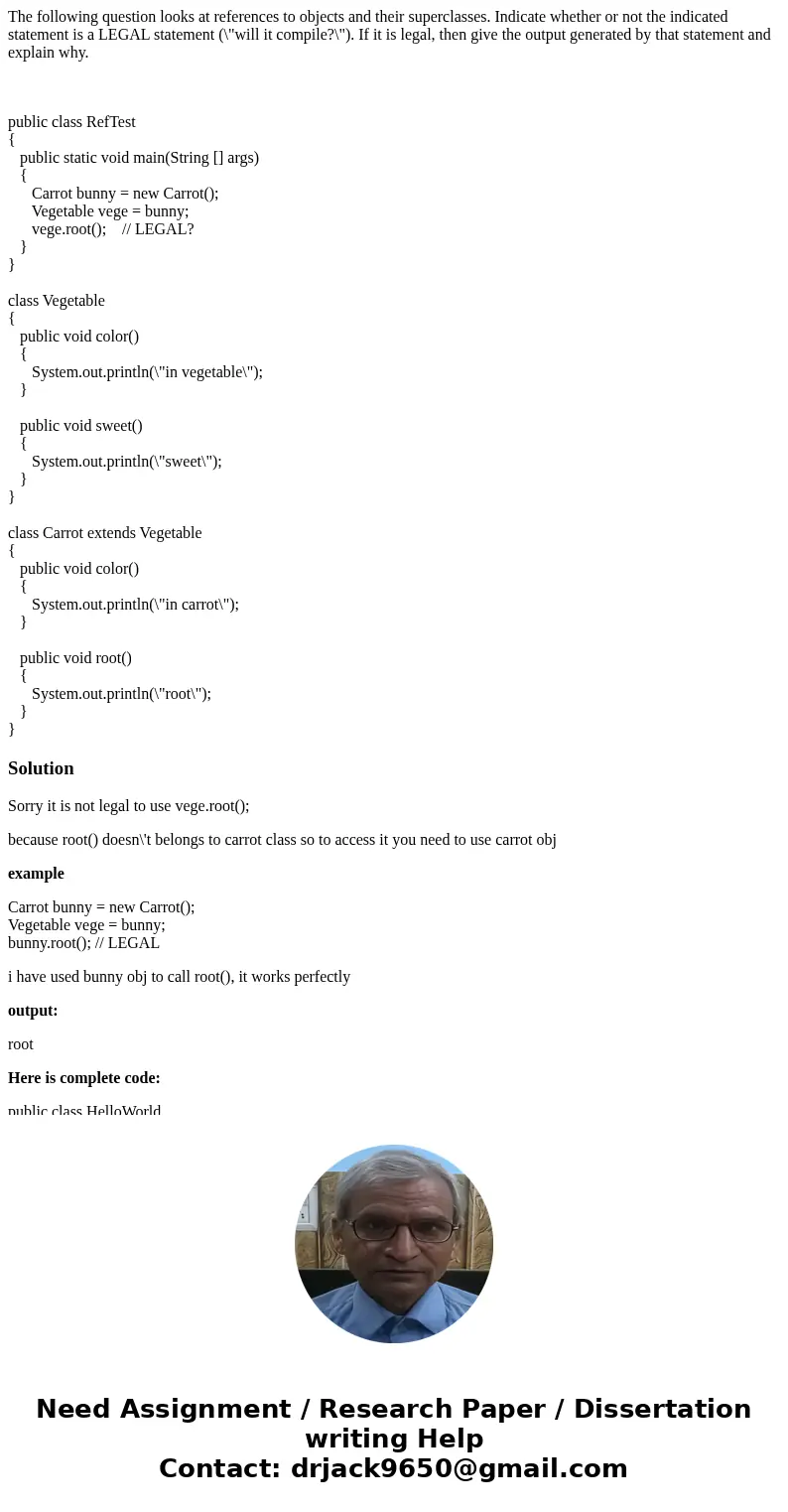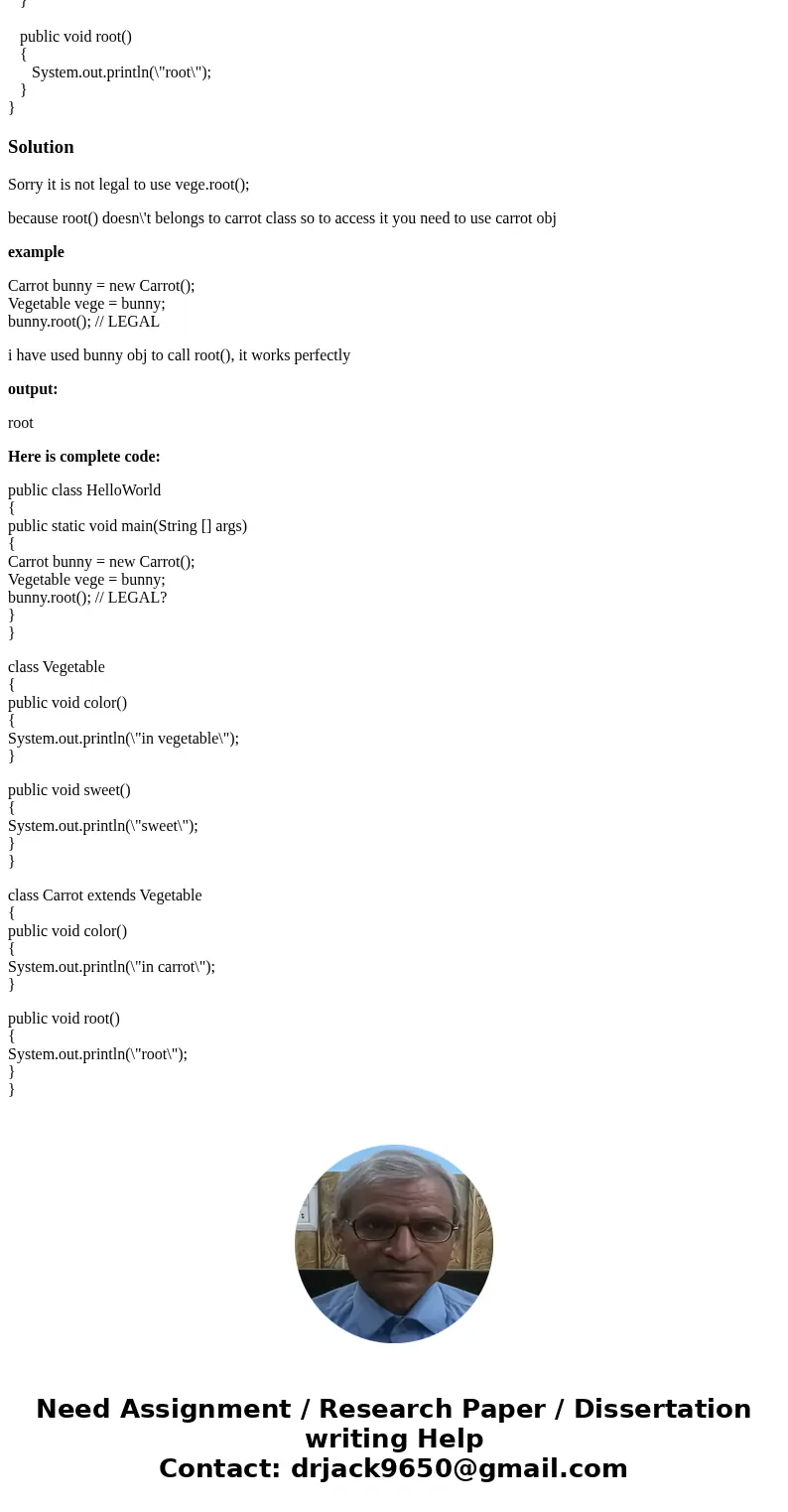The following question looks at references to objects and th
The following question looks at references to objects and their superclasses. Indicate whether or not the indicated statement is a LEGAL statement (\"will it compile?\"). If it is legal, then give the output generated by that statement and explain why.
public class RefTest
{
public static void main(String [] args)
{
Carrot bunny = new Carrot();
Vegetable vege = bunny;
vege.root(); // LEGAL?
}
}
class Vegetable
{
public void color()
{
System.out.println(\"in vegetable\");
}
public void sweet()
{
System.out.println(\"sweet\");
}
}
class Carrot extends Vegetable
{
public void color()
{
System.out.println(\"in carrot\");
}
public void root()
{
System.out.println(\"root\");
}
}
Solution
Sorry it is not legal to use vege.root();
because root() doesn\'t belongs to carrot class so to access it you need to use carrot obj
example
Carrot bunny = new Carrot();
Vegetable vege = bunny;
bunny.root(); // LEGAL
i have used bunny obj to call root(), it works perfectly
output:
root
Here is complete code:
public class HelloWorld
{
public static void main(String [] args)
{
Carrot bunny = new Carrot();
Vegetable vege = bunny;
bunny.root(); // LEGAL?
}
}
class Vegetable
{
public void color()
{
System.out.println(\"in vegetable\");
}
public void sweet()
{
System.out.println(\"sweet\");
}
}
class Carrot extends Vegetable
{
public void color()
{
System.out.println(\"in carrot\");
}
public void root()
{
System.out.println(\"root\");
}
}


 Homework Sourse
Homework Sourse